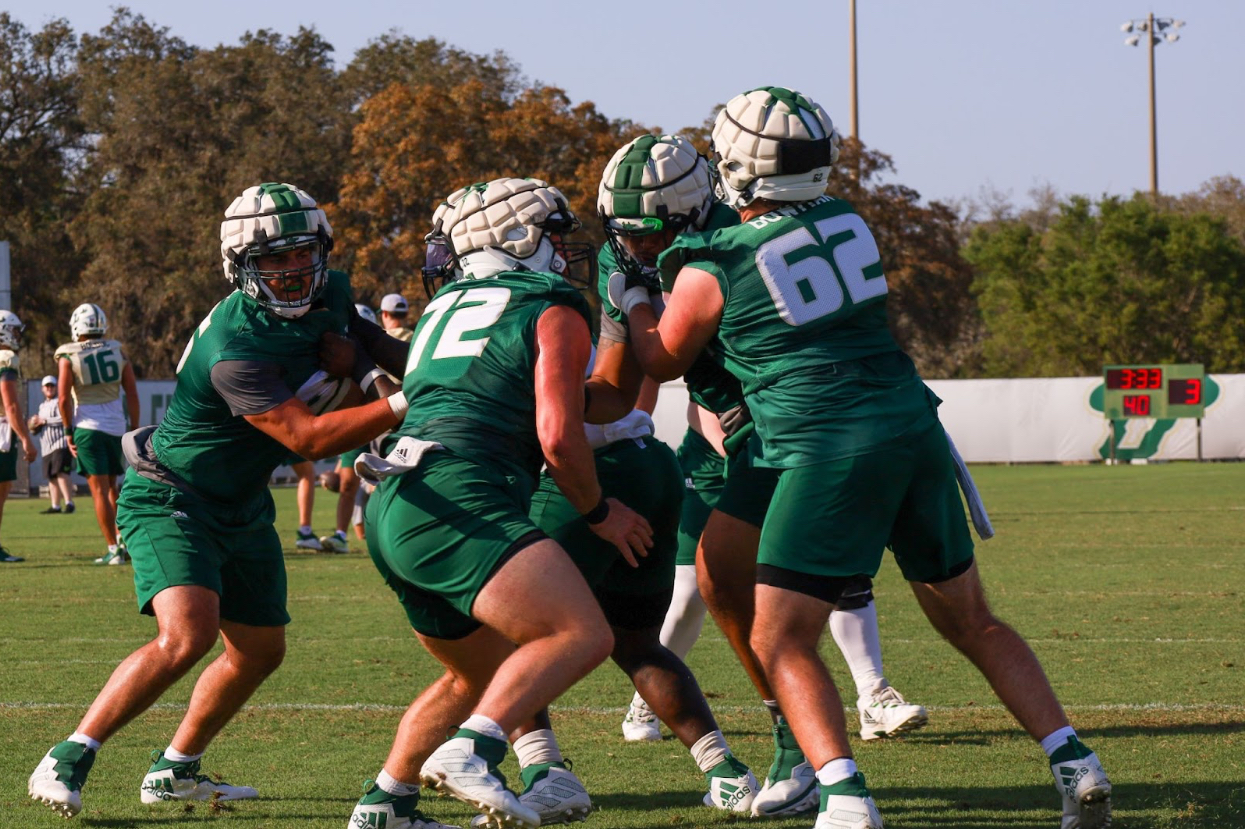OPINION: Toxic masculinity in sports needs to be addressed

USF running back Michel Dukes Jr. was arrested for domestic violence on April 29, according to a press release by the Hillsborough County Sheriff’s Department.
Many college sports foster an environment of toxic masculinity in which disrespect toward women is allowed. The men who participate in these sports, both as athletes and coaches, need to stand up and change this culture. They need to stop pushing these boys and men to be aggressive while bottling up all of their other emotions, and the ones who commit these crimes need to face the same punishments as everyone else.
This is the second arrest of a USF football player during the spring semester. USF wide receiver Bailey Purcell was arrested on Feb. 11 for solicitation of prostitution, lewdness and assignation, according to a report from the Polk County Sheriff’s Office.
These two examples of violence against women by USF football players happened only months apart, which shows evidence of a dangerous pattern.
Toxic masculinity refers to men using dominance, violence and control to assert their power and superiority, and it runs rampant in male-dominated sports, according to counseling center Green Hill’s website.
From a young age, male athletes hear things like “man up,” “boys will be boys” and especially the derogatory phrase “you throw like a girl,” showing them that being tough and masculine is their greatest asset and anything else is considered weak, according to a 2021 article by The Journal.
“Constructing a certain type of manhood has been a central driver within sport, within football, and football becomes a means through which a particular kind of masculine identity can be constructed. It’s aggressive, it’s tough, it’s territorial and it’s basically militarized,” said Jeffrey Montez de Oca, a sports sociologist at the University of Colorado in a 2021 article.
Sports, especially contact sports like football, often discourage men to show emotion or vulnerability, and these feelings are often redirected as outbursts of anger, according to a 2020 study done by the University of North Carolina at Chapel Hill.
Even when this harmful behavior escalates to crime, college athletes frequently get off with lighter sentences for the sake of their athletic career, according to a 2018 article in the Marquette Sports Law Review. The charges are rarely filed by state prosecutors, and, when they are, they are typically reduced or dropped entirely.
Sports can have many positive impacts on boys and men as they are a great way to meet friends, get physical activity and they can even lead to a career. However, this culture that enables disrespect and violence against women must change
Male athletes, especially those in college, and their coaches need to set a better example and condemn these derogatory phrases and actions.







